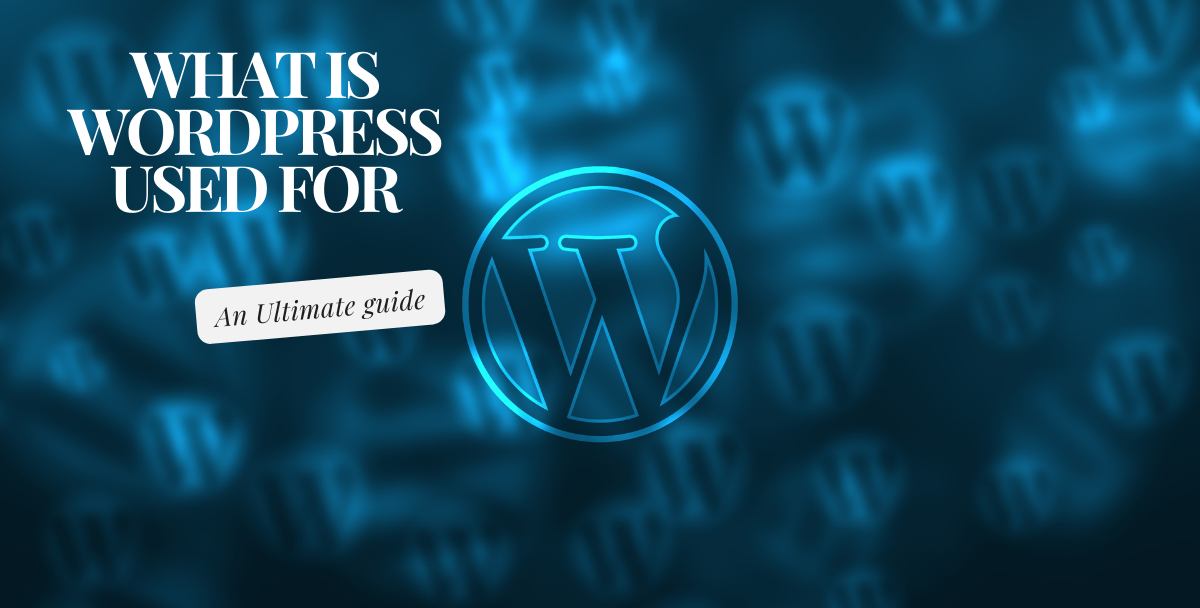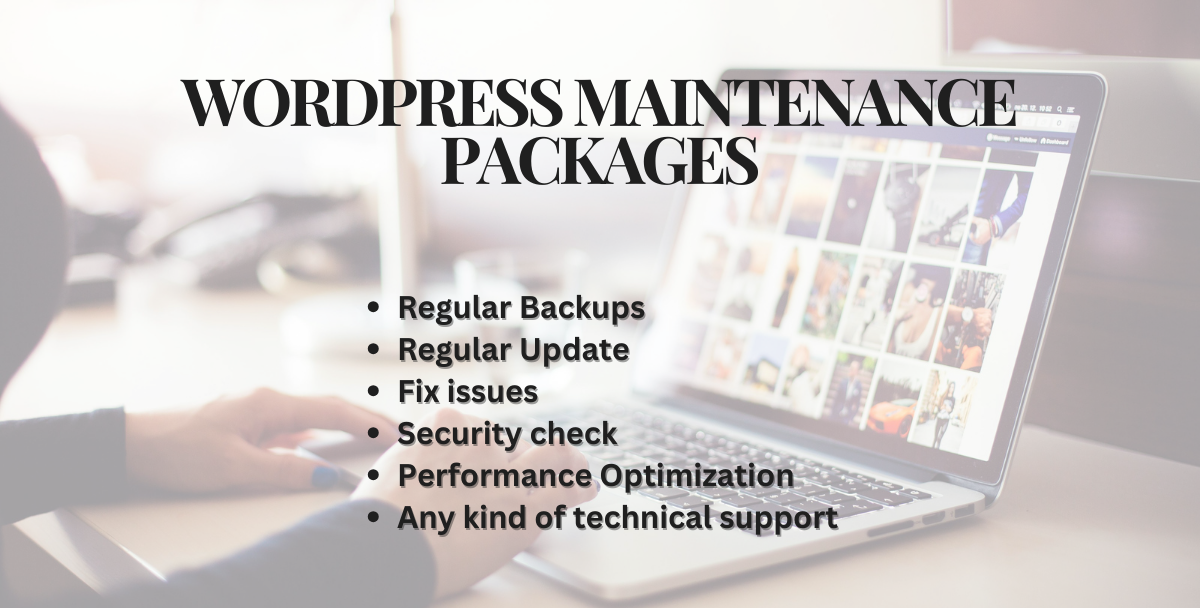What is WordPress Used For: An Ultimate Guide
What is WordPress?
WordPress is best described as a versatile CMS (Content Management System) that has changed the face of the web development industry. Today, WordPress is employed to operate more than 40% of internet websites which make it the market leader in CMS. If it is a blog for personal use, a page for a certain enterprise, or a site for a certain interest, WordPress is a convenient and accessible platform. Here in this guide, you’ll learn what WordPress is, why should you use it for your website, and how to use it. We shall also mention some of the general guidelines that must be followed when conducting search engine optimization of your site.
WordPress is an open source Content Management System that allows the users to design, develop and manage content for a website irrespective of their coding skills.
There are two versions of WordPress:
WordPress.com: This is a hosted version where WordPress will host your blog on their server and you do not have to look for a host yourself. It makes it a good choice for those who would like to begin with one that is simple to install as well as use.
WordPress.org: This one is also known as the self-hosted option and it has more options available to the owner of the website. As for the disadvantages, you will have to purchase your own domain and website hosting, but you are not restricted from using any WordPress theme or plugin on your site. WordPress was designed to be easy to use and this is good news for first time users of the site.
In terms of usability, the navigation is clear, and the options to create additional posts, pages, etc. are located on the main menu of the administration panel. It is very flexible, with thousands of free and paid WordPress themes and plugins available for users to select from. Those refer to the look of the site while those are functionalities such as contact form, SEO, and social buttons among others. WordPress is designed in a way that it supports SEO right from the start, which enhances the ranking of your website.
Also, other plugins such as Yoast SEO allows one to use features such as content analysis, meta description, and keywords. WordPress enjoys a huge and highly active community of developers and users. This means that there’s a wealth of resources such as forums tutorials and guides that can be used to solve problems or gain new skills.
Getting Started with WordPress:
Getting Started Determine whether you prefer simplicity then go for WordPress.com or full control of WordPress. To create a website for your business, you will require a domain name and web hosting services. Some of the top hosting companies for WordPress include Bluehost, Hostinger, and GoDaddy, all of which offer one-click WordPress installation and have great customer services. If I talk about talk myself I use Hostinger.
In most hosting providers, WordPress installation is made available through one-click. When you create your site, abide by the instructions given to you by your host. com, you can register with them through their website and follow the necessary steps on the process.
Selecting and Implementing a theme:
A Theme is a like a dress to your website. A good theme will decide that how your website or blog will be look like. It has to do with the appearance or the format of the WordPress site and the location of elements on the site. Currently, WordPress offers over 10,000 free themes downloaded from the official WordPress theme repository, but you can purchase premium WordPress themes for additional functionality and design. After deciding on a theme, download that particular file and install it to override the current theme on WordPress site.
Once you are done here and your theme is activated, you are ready to style your site. This entails incorporating a logo, developing a horizontal menu, and styling the look of the homepage. Some of the themes include options that are available for customization within the WordPress interface which is Customizer.
Plugins are software supplements that enhance your WordPress website. Let’s talk about some most commonly used Plugins.
RankMath SEO: SEO means Search Engine Optimization. This Plugin will help you to in ranking Google Searh Engine. It will guide you throughout your content until you make it score 100. It will tell you from your content Title to Last word of your content that you are going to publish.
Akismet: Prevents spam comments on your site, thus making it easy to moderate comments. It will save your site from any kind of spamming.
Jetpack: Promises security products and services, better operation of sites, and tools for site management.
Contact Form 7: It provides you with an option of having contact forms on your site. As you see in many websites there is a Contact Us Page. In that Contact Us Page there is usually a a message box appears. Where you can contact with the website administration. So this is for your website visitor to contact your website.
Elementor: A portfolio page that allows users to build custom page layouts by dragging elements around. In the WordPress case, the paradigm of ‘content is king’ applies.
Creating Content:
After installing plugins now the next step is to create your content you want to publish on your website. Start by creating essential pages for example About Us page, Home Page, Contact Us Page etc.
In posts use for daily, weekly or monthly update, or blog or news items. Utilities can format text and insert images or media through block editor developed by WordPress Plugin called Gutenberg.
Optimizing Your Content:
All About SEO:
How To Optimize Your Site To get your site on search engine, it is vital to learn SEO or Search Engine Optimization.
Use SEO Plugins: Some plugins such as Yoast SEO and RankMath SEO helps users to undertake optimal keyword placement, proper writing style and meta description for each of the posts and other pages.
Keyword Research: Determine subject-specific keywords that pertain to your material and integrate them into your headlines and subheadings and the actual text content.
Optimize Images: Always ensure that you use relevant names when you are naming your files and meaningful tags where you are using alt text for images.
This is beneficial in enabling search engines to index and understand the content of the images that you have placed on your site.
Create Quality Content: It has been ascertained that search results are generated back by better and informative Web content. Strive to write carefully, by covering a broad area where you can give useful information to your readers.
Improve Site Speed: A quick loading of the site helps the user get a nice experience and this can help in attaining high ranks in the respective search engines.
There are tools such a Google Page Speed Insights where you will be able to see all the speed problems you may have.
Maintaining Your Website:
It is important to Maintain your Site. Regular maintenance is essential to keep your WordPress site secure and running smoothly.
Here are some basic maintenance tasks:
Update WordPress, Themes, and Plugins: Regular updates provide new features and fix security vulnerabilities. Backup Your Site: Use plugins like UpdraftPlus or Jetpack to schedule regular backups.
Monitor Site Security: Use security plugins like Wordfence or Sucuri to protect your site from malware and hacking attempts.
Final Thoughts
WordPress is a versatile and powerful platform that can grow with your personal and business needs. Doesn’t matter you starting a personal blog or starting an e-commerce store or building a portfolio. WordPress offers the tools and resources to make your website a success. As a beginner, focus on learning the basics, and don’t hesitate to seek help from the WordPress community or professional developers.
With the right approach, your WordPress site can become a valuable digital asset, helping you share your passion, promote your business, or connect with others online. Remember, the key to a successful website is consistent effort and continual learning.
Happy blogging!


